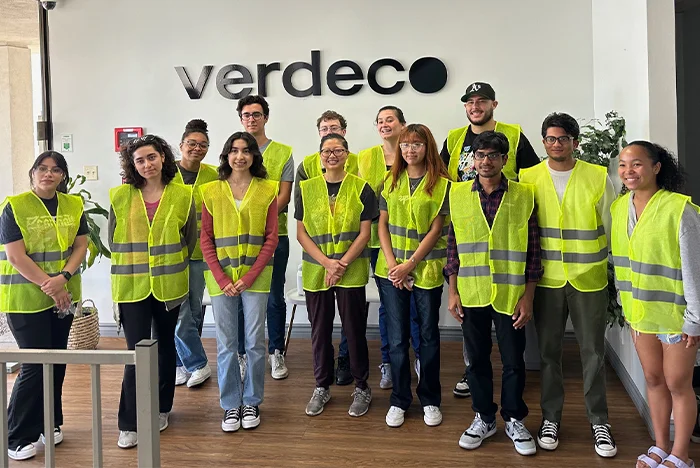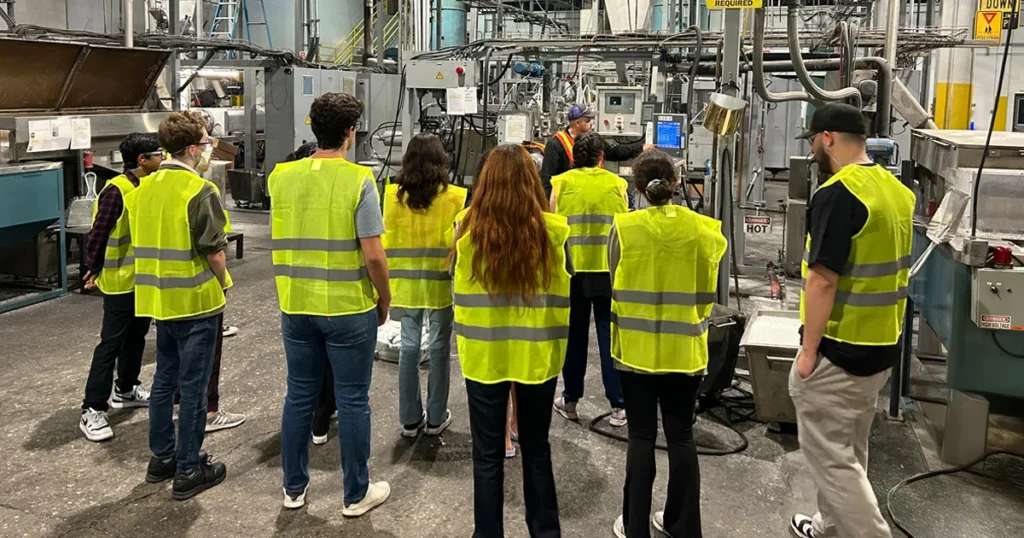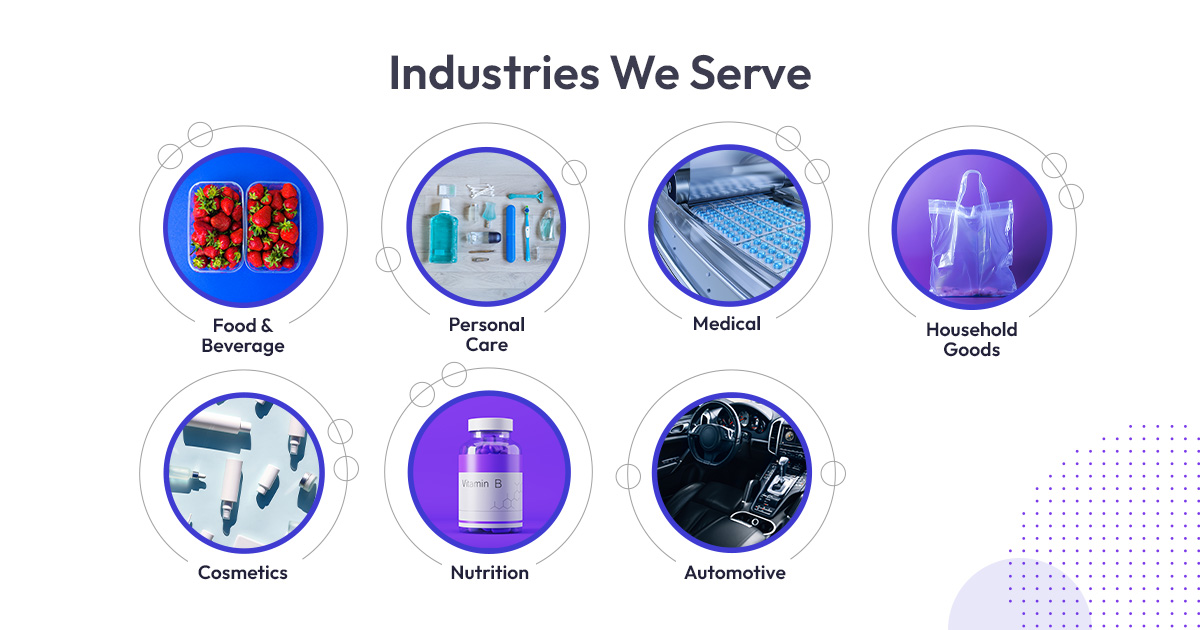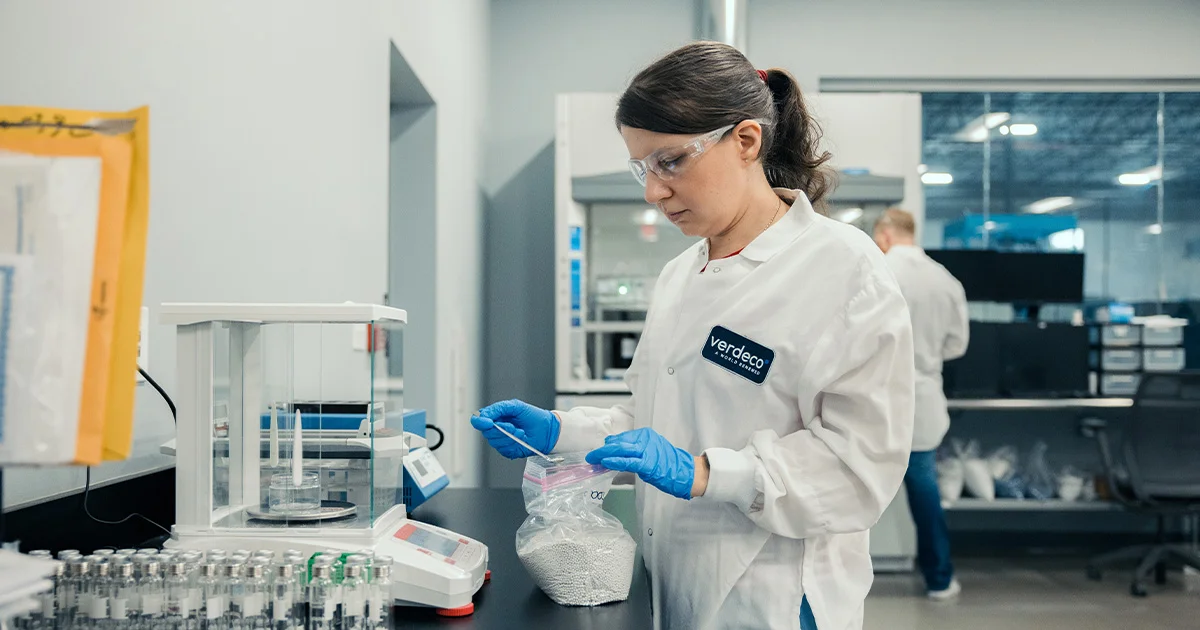
The importance of sustainability cannot be overstated. The rise in consumerism has exacerbated the amount of waste and pollution, increasing the need for recycling. Addressing these challenges requires us to innovate, collaborate, and — perhaps most importantly — develop the next generation of thought leaders.
Driven by our belief in the value of collaboration, Verdeco has proudly partnered with the University of Southern California’s (USC) polymer circularity program. Through material supply, facility tours, and career development opportunities, this partnership supports advanced sustainability studies in and out of the classroom.
USC is at the forefront of environmental research and innovation, and the university’s polymer circularity program and its associated summer studies are a testament to this. The interdisciplinary program is designed to equip undergraduate and graduate students with the knowledge and tools needed to drive sustainable practices forward, specifically in the field of post-consumer plastics.
About USC’s Polymer Circularity Program
The university’s polymer circularity minor program began when Professors Barry Thompson, Megan Fieser, and Travis Williams secured funding to create a new polymer characterization lab and add two new polymer chemistry courses to the curriculum. With the financial support of NIST, USC, and the Burg Foundation, the minor opened up to students pursuing degrees in chemistry, chemical engineering, environmental engineering, environmental science, or business and entrepreneurship.
As the program was added to the academic calendar, Professor Fieser initiated a summer workshop in conjunction with community colleges and institutions that primarily serve undergraduate students. The annual Plastic Circularity Workshop aims to support students at these institutions as they navigate the sustainability industry in preparation for their future careers.
USC’s polymer circularity program also relies on partnerships with industry partners who provide post-consumer plastics to help the students in their chemical recycling efforts and real-world experiences to show them the practical side of the industry. Verdeco is proud to be one of these donors, but our partnership extends beyond providing recycled materials.

Verdeco Facility Tours Showcase rPET Technology
USC’s polymer circularity courses and state-of-the-art labs help introduce students to the world of recycling, but only so much can be learned using fume hoods and small-scale equipment. By taking students on a tour of Verdeco’s LA facilities, our team provides cohort members with an up-close look at the commercial application of post-consumer plastic recycling on a large scale. The tour also gives students a better understanding of the waste stream, the recycling process, and how Verdeco’s rPET solutions help drive a zero-waste economy.
On their most recent tour, Professor Fieser and her students were able to see the rPET extrusion process that Verdeco uses to turn PET flakes into rPET pellets. This firsthand look gave them a deeper appreciation of the critical need for clean, recycled content that is free of impurities. After the tour, one student noted, “I didn't know that getting access to clean PET flake was so important.”
Students also got to see how Verdeco works to ensure pellets consistently meet the rigorous quality standards and unique specifications of each customer. “It was interesting to learn how they control the quality of the rPET pellets they produce to match their customers’ needs,” another student remarked.
Working Together To Create a More Sustainable Future
Verdeco’s partnership with the USC plastic circularity program goes beyond formal education. While the students’ recent tour was certainly informative, the ultimate goal was to equip them with knowledge and resources they can use outside the classroom to make a difference in the world around them. Professor Fieser and her students got a firsthand look at the recycling industry's current victories and challenges, and they were encouraged to continue thinking and innovating toward a more sustainable future.
As this partnership continues, we look forward to watching current and future students use what they’ve learned to help us make a positive impact by reducing plastic waste.



